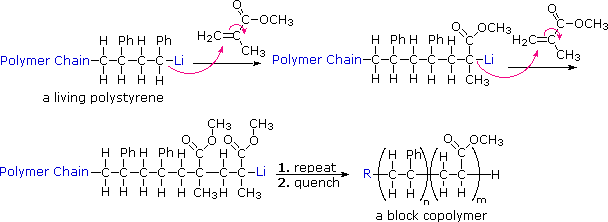High-Performance Polymers: Advanced Materials for Industry
High-Performance Polymers: Advanced Materials for Industry
Blog Article
Checking Out the Varied Applications and Advantages of Polymers in Different Industries
Polymers, with their diverse range of residential or commercial properties and capabilities, have actually become indispensable in different markets, each gaining one-of-a-kind advantages from their application. From improving safety and security and performance in the automobile industry to reinventing medical tools in the healthcare sector, polymers play a critical duty.
Automotive Industry Applications
Polymers play a pivotal function in enhancing the performance and durability of different components within the vehicle field. These flexible products are thoroughly utilized in the production of various parts, varying from interior components to under-the-hood applications. One famous use of polymers in the auto industry is in the manufacturing of light-weight parts. By changing traditional metal components with polymer-based choices, cars can attain better fuel effectiveness without endangering on toughness or safety.

Healthcare Industry Benefits
In numerous health care applications, the benefits of utilizing polymers are extensively acknowledged for their diverse array of useful properties. Polymers play a vital duty in the medical care sector as a result of their versatility, biocompatibility, and cost-effectiveness. One of the primary advantages of polymers in healthcare is their ability to be customized to specific requirements, such as flexibility, sturdiness, and biodegradability, making them suitable for a large range of clinical applications.
Polymer-based materials are extensively used in medical devices, such as catheters, implants, prosthetics, and drug delivery systems, due to their biocompatibility and ability to mimic natural cells. These products can reduce the danger of allergies or rejections, improving patient safety and outcomes. Additionally, polymers are lightweight, making them ideal for wearable clinical devices and making sure patient convenience.
Moreover, polymers enable the growth of innovative therapy methods, such as hydrogels for cells engineering and nanocomposites for targeted medicine delivery. Their simplicity of processing and sterilization makes them essential for preserving high standards of health in medical care settings. On the whole, the diverse benefits of polymers add substantially to advancements in clinical technology and individual care.
Ecological Benefits of Polymers

Additionally, polymers can add to power savings as a result of their lightweight nature. In markets such as transport, lightweight polymer products can aid reduce fuel intake and greenhouse gas emissions. Furthermore, polymers can enable the growth of energy-efficient items such as insulation products that boost power conservation in buildings.
Additionally, polymers play an essential duty in decreasing water contamination. The use of polymer-based filtering systems can have a peek at these guys successfully get rid of toxins and impurities from wastewater, safeguarding water resources a fantastic read and ecosystems. Overall, the environmental benefits of polymers make them useful properties in promoting sustainability and eco-friendly practices across numerous sectors.
Polymers in Electronics and Innovation
Thinking about the boosting need for ingenious and sustainable services in contemporary industries, the integration of advanced polymer modern technologies in the world of electronic devices and innovation has become an essential method for driving effectiveness and performance. Polymers have reinvented the electronics industry by allowing the production of lighter, more flexible, and resilient electronic devices. From smart devices to clinical devices, polymers play a vital duty in enhancing item layout and capability.
One substantial advantage of polymers in electronics is their insulating buildings, which aid shield delicate electronic components from environmental aspects and electric interference. Furthermore, polymers are important in the development of flexible display screens, wearable innovation, and published electronics, using countless possibilities for producing clever and interconnected devices.
Moreover, making use of polymers in electronic packaging has brought about advancements in miniaturization and thermal administration, boosting the total efficiency and reliability of electronic systems. As modern technology remains to develop, the adaptability and flexibility of polymers will unquestionably drive additionally technology in the electronics industry, shaping the future of innovation.
Function of Polymers in Building And Construction and Framework
The integration of sophisticated polymer products in building and construction and framework projects has transformed the method frameworks are designed and developed in contemporary times. Polymers use numerous advantages in the building and construction sector due to their flexibility, toughness, and cost-effectiveness. One vital role of polymers in building is their usage in coverings and sealers, giving protection against ecological aspects such as dampness, UV radiation, and deterioration. In addition, polymers are utilized in the production you can try these out of light-weight and high-strength composite materials, improving the architectural honesty of structures while minimizing general weight.
In addition, polymers play a critical role in sustainable building techniques by enabling the advancement of energy-efficient frameworks. Shielding products made from polymers help control indoor temperature levels, lowering the need for heating and cooling down systems and inevitably lowering energy usage - Polymers.
Verdict
In conclusion, polymers play a vital duty in various industries such as vehicle, medical care, ecological, electronics, and building. Their flexible residential or commercial properties make them useful in developing cutting-edge solutions and products. From enhancing gas effectiveness in vehicles to enhancing clinical tools, polymers offer many benefits. Furthermore, their influence on minimizing waste and promoting sustainability highlights their importance in modern applications. The widespread usage of polymers shows their considerable payment to progressing innovation and enhancing lifestyle.
Report this page